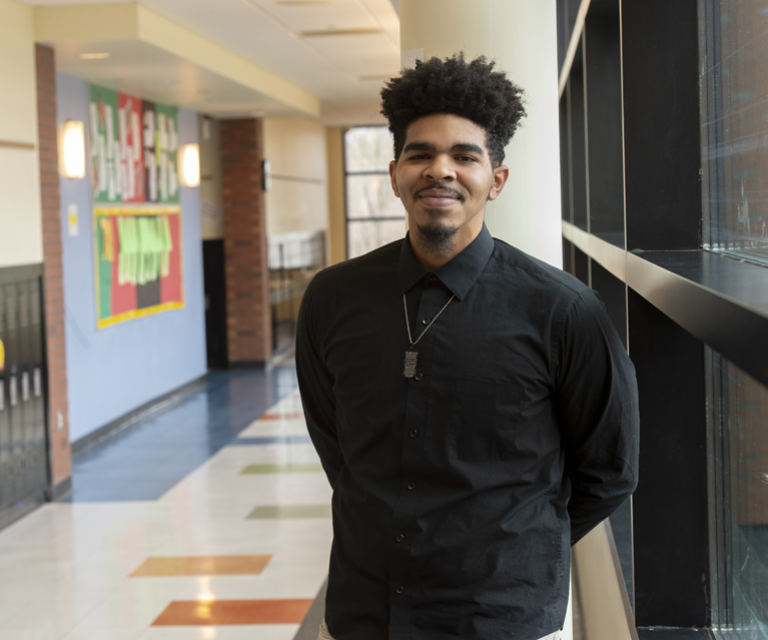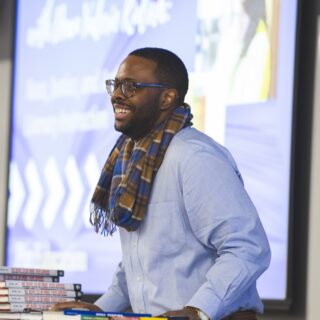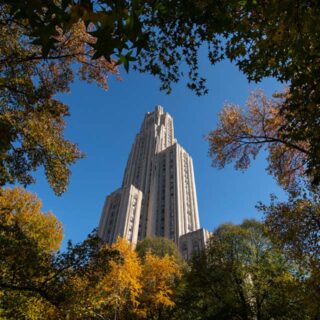
New Summer Academy Will Nurture the “Genius, Joy, and Love” of Future Black Educators
The University of Pittsburgh School of Education is launching a paid summer academy for high school seniors as part of a new initiative to bring more Black teachers to Pittsburgh Public Schools. The academy will complement The Pittsburgh Promise’s Advancing Educators of Color (AEC) Scholarship, which seeks to add 35 Black educators to the district over seven years.
“The importance of Black educators cannot be overstated,” says Valerie Kinloch, Professor and Renée and Richard Goldman Endowed Dean of the University of Pittsburgh School of Education. “However, statewide, Black educators comprise less than 4% of the teacher population in K-12 public and charter schools. Our new summer academy program will ensure that our students not only get to college but are supported along the way.”
Created and designed by Kinloch, the Pitt Education summer academy—which will be called Genius, Joy, and Love: A Focus on Black Students—will begin in summer 2022 with an initial cohort of approximately 10-20 rising high school seniors from PPS who are AEC scholarship recipients. The summer academy will encourage education as a career path and as a profession by offering an engaging and mini-college experience that emphasizes literacy instruction, STEAM, and college preparatory work.
The Pittsburgh Promise provides up to $20,000 in scholarships for college, trade, or technical school education to eligible PPS graduates who attend post-secondary institutions in the state of Pennsylvania.
The AEC scholarships will go beyond that by fully covering the cost of college for selected students from PPS who train to be educators, pursue their teaching certificate, and teach in PPS for at least five years post-graduation.
Debra K. and William S. Demchak donated $1 million to The Pittsburgh Promise to create the AEC scholarships. They also provided $250,000 to Pitt Education for the summer academy program. Debra Demchak is secretary of The Pittsburgh Promise board of directors and William Demchak is president, chairman, and chief executive officer of PNC Financial Services Group.
“I am thankful for the generous gifts from Debbie and William Demchak that will support Black students in two ways: through the Advancing Educators of Color scholarship and through this innovative summer academy,” says Kinloch. “The new Genius, Joy, and Love Summer Academy at Pitt Education will provide opportunities for Black high school students attending Pittsburgh Public Schools to receive an engaging mini-college experience. I could not be more excited!”
An Immersive Experience for Future Educators
Like school districts nationwide, PPS schools and schools across greater Pittsburgh have a dire shortage of Black educators. An unfortunate reality is that some students will graduate high school without ever having a Black teacher.
The Pitt Education summer academy seeks to change that.
Over the course of four weeks, the AEC scholarship recipients will come to Pitt’s campus and learn from Pitt Education faculty members and community partners in immersive, hands-on learning sessions. High school students will be paired with undergraduate and/or graduate student mentors.
AEC scholarship recipients will receive a stipend and supplies to support their participation and learning.
Through the summer academy, participating students will receive literacy enrichment through lessons on critical reading, writing, and action. They will also study urban education, mathematics and science education, and digital media and technology.
“Our hope is that we will further support students to think about education as a profession, as a career choice,” says Kinloch. “We want them to be energized enough to say, ‘I want to be a teacher, I want to be an educator, I want to do this work not just on behalf of my community but also people who look like me.’ That’s one of the primary goals.”
In connection with this learning, participating students will also have opportunities to participate in science, technology, engineering, arts, and mathematics (STEAM) experiences. Eventually, they will be able to engage in hands-on experiences with 3D printers in a maker space that will allow them to conceptualize, design, and make materials.
Additionally, the summer academy will provide participating students with insights related to college readiness. There will be college application sessions, financial aid workshops, campus tours, observations of University classes, community visits, and mentoring sessions with college students, faculty members, and local community representatives.
Building Big for the Future
Never one to think small, Kinloch has set her ambitions high.
Beyond the summer academy for students, she is planning a separate Genius, Joy, and Love Academy for Educators from Pittsburgh Public Schools. The educators academy may also begin in summer 2022.
Kinloch knows that programming like this—and similar efforts housed in Pitt Education like the Justice Scholars Institute and the Practices of Freedom grant funded by the McElhattan Foundation—can bring forth systemic change that can benefit People and Communities of Color.
“Research shows that Black teachers are undeniably successful at improving the overall well-being and academic and nonacademic engagements of Black children and youth, which increases high school graduation rates and the likelihood of college attendance,” says Kinloch.
For participating students, the summer academy is the start of a deeper relationship with Pitt Education.
They will return the following summer to provide mentoring support to the next cohort of high school students.
Kinloch hopes many choose to pursue a career in education. Some may enroll in Pitt Education’s new Bachelor of Science in Teacher Education program, which begins in fall 2023.
“The underrepresentation of Black educators must be addressed,” says Kinloch. “By undertaking new efforts to recruit, retain, and support Black educators, we will be able to ignite learning, transform education, and uncover the genius, joy, and love that already exist within all of our students.”




